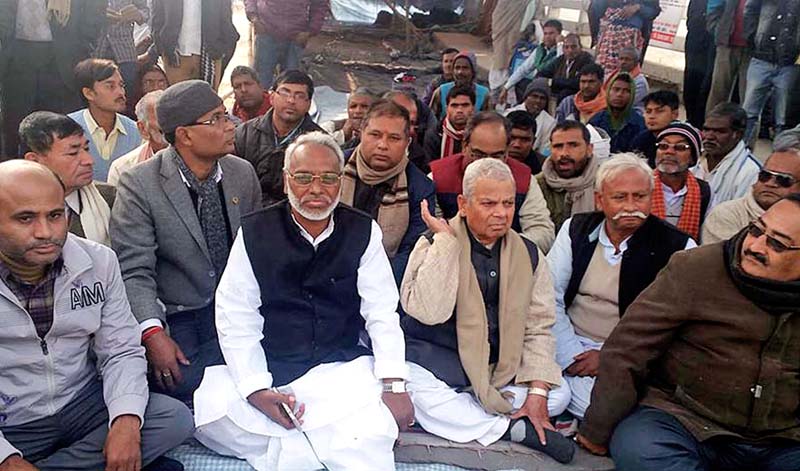LETTERS: Learn lessons from mistakes
It was welcoming news to read “UDMF lifts border blockade defers strike” (THT, Feb. 9, Page 1). People were desperately waiting to hear it after facing difficult days for the last four months due to the Madhes unrest and unofficial Indian trade embargo. Was it because the UDMF lately saw that the number of their political cadres, who were stationed at the Nepal-India border points, started dwindling? Or, was it because they completely failed to realize on time that the blockade at the border points was a complete mistake on their part? Whichever were the reasons they must have now learned lessons that there were other alternatives of expressing their dissatisfaction on constitutional issues. If UDMF’s concerns and demands are genuine, what has been the problem for the “big three” to fulfill them? Is it the egoistic politics of the “big three”, who do not want to budge an inch from their political stands? They decided to unilaterally demarcate the boundaries of seven provinces without realising its consequences. As a result, the entire nation and its people had to tremendously suffer from their unilateral decision. The economy of the country has been pushed back ten years. Most of the development projects remain stalled. Thousands of business organizations had to shut down due to lack of raw materials and petroleum products.
Rai Biren Bangdel, Kathmandu
Extinction
The unfortunate hunting spree of extremely vulnerable Houbara bustard bird species across different provinces in Pakistan needs serious introspection. Pakistan is one of the nations with the worst record for wildlife conservation. Indiscriminate hunting of wildlife in Pakistan are regular due to the poor management of national parks and sanctuaries. All these factors have contributed significantly to the mass extinction of several species of flora and fauna in the nation over the past few decades. Several national steering committees and parliamentary committees have proposed a number of corrective measures; and such recommendations have only collected dust in the record room with no action being taken. The consequence has been rapid erosion of the national biodiversity across the country. This, together with poor awareness and extremely low level of education in the rural belts, have further deteriorated the local ecosystems and endangered several wildlife species, including the Houbara bustard birds. Rich hunting groups from the Gulf countries flock every year to Pakistan to hunt the birds and other species and have almost push the birds towards extinction. The judiciary of the nation initially placed a ban on such indiscriminate killing of these species; however, the ban was revoked on the basis of an under table request from the Pakistani government suggesting that it would hamper the national interest by antagonizing rich and influential hunters from the Gulf nations who are rich and politically influential.
Saikat Kumar Basu, Canada






